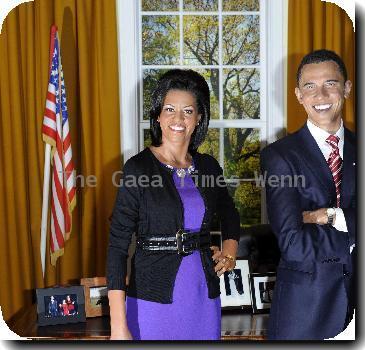Scientists begin 520-day Mars mission simulation in Moscow research center
By APThursday, June 3, 2010
Scientists begin 520-day Mars mission simulation
MOSCOW — An international team of researchers climbed into a set of windowless steel capsules Thursday to launch a 520-day simulation of a flight to Mars intended to help real space crews of the future cope with confinement, stress and fatigue of interplanetary travel.
The six-member, all-male crew of three Russians, a Frenchman, an Italian-Colombian and a Chinese will follow a tight regimen of experiments and exercise under video surveillance.
The Mars-500 experiment — conducted by the Moscow-based Institute for Medical and Biological Problems in cooperation with the European Space Agency and China’s space training center — aims to reproduce the conditions of space travel, with exception of weightlessness.
“For me, it will be mainly my family, and the sun and fresh air,” French participant Romain Charles said when asked by reporters what he will miss most during the long confinement.
The researchers will communicate with the outside world via the Internet — delayed and occasionally disrupted to imitate the effects of space travel. They will eat canned food similar to that currently offered on the International Space Station and shower only once a week or so. Crew members will have two days off a week, except when emergencies are simulated, though they will still be in the capsules.
“Certainly, the crew is largely on its own here, with very limited communications with the outside world,” Martin Zell of the ESA’s Directorate of Human Spaceflight told The Associated Press. “They have to cope internally with a lot of conditions and to organize themselves.”
A real mission to Mars is decades away because of huge costs and massive technological challenges, particularly the task of creating a compact shield that will protect the crew from deadly space radiation. President Barack Obama said last month that he foresaw sending astronauts to orbit Mars by the mid-2030s.
The crew members said they were confident of success. Diego Urbina, the Italian-Colombian member, told a news conference that for him it would mean “accomplishing dreams about the future, doing something that no human has done before.”
Psychologists said long confinement would put the team under stress as they grow increasingly tired of each other’s company. Psychological conditions can be even more challenging on a mock mission than a real flight because the crew won’t experience any of the euphoria or dangers of actual space travel.
French participant Romain Charles said he was bringing along a guitar to warm the atmosphere. Others said they would bring books, movies and pictures of their relatives.
The crew will split their days into eight hours of work, eight hours of sleep and eight hours of leisure.
“The routine is much more than on a real mission, there is a little bit less thrill,” Zell said. “But I think their team spirit, and their motivation to go there and to accomplish the whole mission is enormous.”
As part of efforts to keep the crew in good spirits, they will play an “interplanetary” match with former world chess champion Anatoly Karpov at some point during the experiment.
The facility for the experiment is in western Moscow and includes living compartments the size of a bus connected with several other modules for experiments and exercise. A separate built-in imitator of the Red Planet’s surface is also attached for a mock landing.
The mission director, cosmonaut Boris Morukov, said the experiment could be disrupted for medical or technical reasons or if some of the participants categorically demand it be stopped.
“Each crew member has the right to end the experiment and walk out,” he said at a news conference. “We have had such negative experience in the past, and I hope it won’t happen during this experiment.”
A similar experiment in 1999-2000 at the same Moscow institute went awry when a Canadian woman complained of being forcibly kissed by a Russian team captain. She also said two Russian crew members had a fist fight that left blood splattered on the walls. Russian officials downplayed the incidents, attributing them to cultural gaps and stress.
Morukov said the organizers had considered some female candidates for the current experiment, but they hadn’t been chosen for various reasons. “Selecting an all-man crew wasn’t our goal,” he said.
Other crew members include Russians Alexey Sitev, 38, Sukhrob Kamolov, 37, Alexander Smoleyevsky, 33 and Wang Yue, 26, from China. The organizers said each crew member will be paid about $97,000 for taking part in the experiment.
For Sitev, the mission captain, the experiment means separation from his wife just a few weeks after the two tied the knot. “It’s difficult for me to part with my family, just as it is for any other person,” he told journalists just before stepping in.
____
On the Web:
The Institute for Medical and Biological Problems at mars500.imbp.ru/en/index_e.html
The European Space Agency at www.esa.int/esaMI/Mars500/index.html
Tags: Astronomy, Barack Obama, Eastern Europe, Europe, Moscow, Planets, Russia




